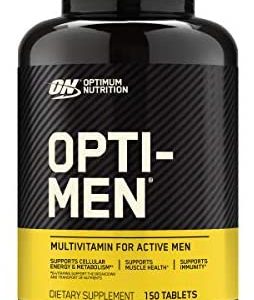
Hubris is a Greek word that originally meant defiance of the gods, nearly always resulting in divine retribution. Its modern meaning is “extreme arrogance, a combination of foolish pride and dangerous self-confidence. It aptly describes mankind’s attitude towards the natural world.”
Jan Bee Landman, Editor-in-Chief, of Aftermath magazine says,
“We humans have always had a hugely inflated opinion of ourselves. Our ability to outsmart other animals made us believe that we were unique, superior to all other beings, not bound by the laws of nature but free to do anything we wanted. We imagined that we were supernatural, the center of the universe, pinnacle of creation, darlings of our imagined gods, destined for eternal life, partly divine and sometimes even entirely so. This delusion of grandeur blinded us to the grave errors that marked our reign, the worst–and now seemingly fatal–error being our disregard for nature.”
Prosanta Chakrabarty explores the roots of our dis-ease and calls us to reconnect with the natural world. Dr. Chakrabarty is one of the world’s leading experts on ecology, evolution, and, interestingly, fish. He says,
“I have described 15 new species of fishes from almost as many countries and I’ve been lucky enough to have worked in more than 35 countries doing natural history research.”
He was a Program Director for the National Science Foundation and is a TED Senior Fellow. He teaches one of the largest evolutionary biology classes in the United States where he dispels many myths about evolution and the place of humans in the community of life.
We’ve all seen images like this one that purport to summarize the path of evolution with modern humans being the last stage of our advance from monkey to modern man.

In his powerful and important TED talk, “Four Billion Years of Evolution in Six Minutes,” Dr. Chakrabarty begins with a provocative question.
“If we evolved from monkeys, why are there still monkeys?”
His answer is even more surprising.
“Because we’re not monkeys, we’re fish.”
In his 5 minute and 41 second talk, he dispels some hardwired myths about evolution, encouraging us to remember that we’re a small part of a complex, four-billion-year process, and not the end of the line.
“We’re not the goal of evolution,”
Chakrabarty says.
“Think of us all as young leaves on this ancient and gigantic tree of life — connected by invisible branches not just to each other, but to our extinct relatives and our evolutionary ancestors.”
Animal Secrets: Nature’s Lessons For a Long and Happy Life
Another man with a unique perspective on human wellbeing is David B. Agus, M.D. Dr. Agus is the author of the international bestsellers The End of Illness, A Short Guide to a Long Life, and The Lucky Years. He is a professor of medicine and engineering at the University of Southern California and founding director and CEO of the Lawrence J. Ellison Institute for Transformative Medicine.
He is also the author of the new book, Animal Secrets: Nature’s Lessons for a Long and Happy Life. There is a myth that Homo sapiens (Latin: “wise man”) are the end product of evolution. This myth, he believes, blinds us to the reality that rather than being the pinnacle of evolutionary progress, we are a very young, outlier, species, in danger of being blown off the tree of life like a diseased leaf unless we wake up and learn from our elders.
In the Introduction to Animal Secrets, Dr. Agus quotes Albert Einstein:
“Look deep into nature, and then you will understand everything.”
He goes on to pose several hopeful health-related questions:
“What if, for the rest of your life, your body could be ten to fifteen years younger than your birth certificate says? What if you could safely edit your genes to avoid getting Alzheimer’s or heart disease that notoriously runs in your family? What if I could assure you that you’d never develop cancer or some rare, abominable illness with no meaningful treatment? What if you could know exactly which diet and exercise regimen to follow to stay lean and fit? What if you could avoid ever feeling depressed, achy, foggy, and ‘old’?”
I think most of us would pay a good deal of money if we could get positive answers to even one of these questions. We’d probably pay even more if we didn’t have to wait in line to enroll in some high-tech scientific study testing a new drug that had been recently discovered after billions of dollars invested by a multi-national pharmaceutical company with a dubious reputation.
What if we could get introduced to these healthcare miracles from an expert that lives very close to us?
“Seventy-eight million households in America,” say Dr. Agus, “have four-legged, fleecy family members. My family is one of them.”
In his chapter, “Oh My Dog! More Than Man’s Best Friend,” Dr. Agus gives us the first of many stories in the book that offers wisdom to create a life of health from our evolutionary elders in the animal kingdom.
I grew up in a family with dysfunctional parents. My father had become increasingly stressed and depressed when he couldn’t find work. He took an overdose of sleeping pills and was committed to the state mental hospital. My mother lost her own father when she was young and had become obsessed with death ever since. She was convinced she would die soon and bought life insurance policies she couldn’t afford so that I would have money when she died. When I was five years old she bought life insurance policies on me “so your family will have money in case you die.”
My refuge from the craziness of life was with my dog Spotty. He was playful, full of energy, loved me unconditionally, and was always ready for romp in the yard. At night he would sleep at the foot of my bed. He was my friend and companion and the only being I felt I could trust. Dr. Agus says that domesticated dogs have been found with human groups that go back at least 130,000 years into our hunter-gatherer past, long before we domesticated other animals like sheep, goats, and cattle.
Dr. Agus describes many ways that dogs contribute to our health, not the least of which is their ability to heal our emotional wounds.
“A pet pooch,” says Dr. Agus, “provides comfort, cuddles, and unconditional love. And because dogs know only how to live in the present, they can help us all focus on the now, sometimes hard to do. Even the bond we feel when we play with our dogs and enjoy those almost inevitable licks is like therapy on the brain and the nervous system.”
I have spent a lot of money on therapy in my own life, and as a psychotherapist offered my care and support to thousands of men, women, and children, but I have never forgotten the great healing that comes from animals.
There are many other animal secrets the good doctor shares with us. These include head-bobbing pigeons that offer creative strategies for preserving our memories and warding off dementia, bold squirrels and pigs that harbor secrets for managing chronic pain, elephants that help unlock insights into preventing cancer, giraffes who offer solutions to cardiovascular issues, and many animal secrets that provide health-promoting wisdom we can all use.
Humans have been on planet Earth a comparatively short time. Our animal elders have been here much longer. We would do well to listen to what they can teach us and stop pretending that we have nothing to learn from the animal partners who are with us in the community of life. As the cultural historian and religious scholar Thomas Berry so eloquently warned us:
“We never knew enough. Nor were we sufficiently intimate with all our cousins in the great family of the earth. Nor could we listen to the various creatures of the earth, each telling its own story. The time has now come, however, when we will listen or we will die.”
You can learn more about David B. Agus, M.D. and his work here. If you would like to read more articles on ways to stay healthy in body, mind, and spirit, please join me at MenAlive.com
The post The Hubris of Mankind: Our Survival May Depend on The Secrets We Can Learn From The Animals appeared first on MenAlive.




